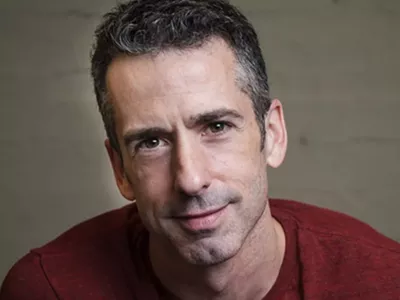"Detroit is changing so rapidly," said Grace Boggs after viewing last week's Metro Times cover story, "Detroit People," and noting that several of the people chosen for the article have been involved with her or the James and Grace Lee Boggs Center.
Among them were Anne Perrault of Avalon International Breads; educator and food activist Malik Yakini; Ashley Atkinson, who directs Keep Growing Detroit; Yusef Shakur, a writer and neighborhood peace activist, and others. The point is that so many of the people who are making a grass-roots impact in Detroit have some connection to Grace or the Boggs Center.
As the MT story points out: These are "your neighbors. You're better off for having them around."
And when you come right down to it, Detroit and the world are better off for having Boggs around. Boggs is a philosopher, activist, and writer who turns 100 years old on June 27. Over the past 70 or more years, Boggs has been among the highest level of the labor, civil rights, black power, women's rights, and environmental justice movements.
"The sweep of the century," says Boggs intimate Shea Howell, who teaches at Oakland University. "There are probably very few 100-year-old revolutionaries still around. In this past year, we've all thought about the potential loss of Grace and her transition, but also about her contributions. The birthday is a place to celebrate the people, the connections, and the work that she has done much of that century here in Detroit."
Those contributions are palpable, visible, and many of them are part of the weeklong birthday proceedings. The first event of Boggs Week is the last night of the Allied Media Conference. The Allied Media Projects grew from young people who were involved with Boggs Center programs and will honor Boggs on the last day of the June 18-21 conference.
Boggs won't be there to receive the honor. She's been in hospice since last fall.
But Boggs' presence has been built into so much of Detroit. You may have seen the hoop houses popping up around town on urban gardens, or the gardens themselves that seem to be everywhere. The urban gardening movement was supported and nurtured by the Boggses more than 20 years ago through work with the Gardening Angels (a group of elders) and the Detroit Summer youth program. Atkinson, director of Keep Growing Detroit, was once a Detroit Summer youth.
The idea for Avalon International Breads is known to have developed in part from Perrault's and Jackie Victor's discussions with Grace and Jimmie Boggs about businesses that are good for the community they reside in. Avalon will be a stop for bus tours that will highlight Boggs-influenced locations around town.
The Boggs touch can be found in many places. For instance, the Boggs School in the Franklin Wright Settlements will be having a fundraiser that week. Julia Putnam, co-founder and principal of the school, was another Detroit Summer participant who caught the bug and maintained her Boggs connection to help create something more.
That's what the Boggs Center has been doing all along. The Hope District in the Van Dyke and Forest Avenue area is a Boggs-related project. As are Shakur's effort in "putting the neighbor back in the hood" and creating Peace Zones for Life. Ron Scott and the Detroit Coalition Against Police Brutality also have that connection. The activist rapper Invincible is part of the Boggs network. So is the New Work Field Street Collective.
"The focus is pretty much to honor Grace's and Jimmie's work over the years in terms of how it's impacted our community and humanity in general," says Kim Sherobbi, a Boggs Center board member. "The Boggs Center gave me permission to believe that I could change the world."
That's a heady idea for folks living in Detroit over the past few decades as the city crumbled from neglect and disappearing resources. James and Grace focused on doing what you can with what you have. The Boggs Center mission is "to nurture the transformational leadership capacities of individuals and organizations committed to creating productive, sustainable, ecologically responsible, and just communities."
"I never thought about how I could impact the world," says Sherobbi. "Seeing how Grace and people in the Boggs network changed people, now I know that one person can truly make a difference and can make a worldwide impact."
Grace Boggs was born the child of Chinese immigrants in 1915. She moved to Detroit in the 1940s and married autoworker Jimmie Boggs. Together they were part of the spine of revolutionary movements in the city. Since Jimmie's death in 1993, Grace has expanded her vision based on observing and analyzing world events. She has written books, The Next American Revolution (co-author Scott Kurashige) and Living for Change, an autobiography. Grace's revolution is not about seizing political power from a government. It's about changing your way of thinking and relationship to the way the world is and imagining it the way you want it. Grace and this celebration are about envisioning the way forward for the next 100 years.
"As a 38-year-old who was born and raised in the city, who's raising a teenage son," says Boggs board member Tawana Petty, "the Boggs Center is significant because everywhere around us we see the assault on humanity. The Boggs Center represents visionary resistance, re-spiriting young people to be not just fighting in opposition but being creators. What I want to create vs. just being responders to what is being taken from me."
The ideas and approach of Grace Lee Boggs will be significant long into the next century.
To find out more about Boggs' birthday events go to graceleeboggs100.org.
Larry Gabriel writes the Stir It Up and Higher Ground columns for the Detroit Metro Times and is editor of The American Cultivator.







